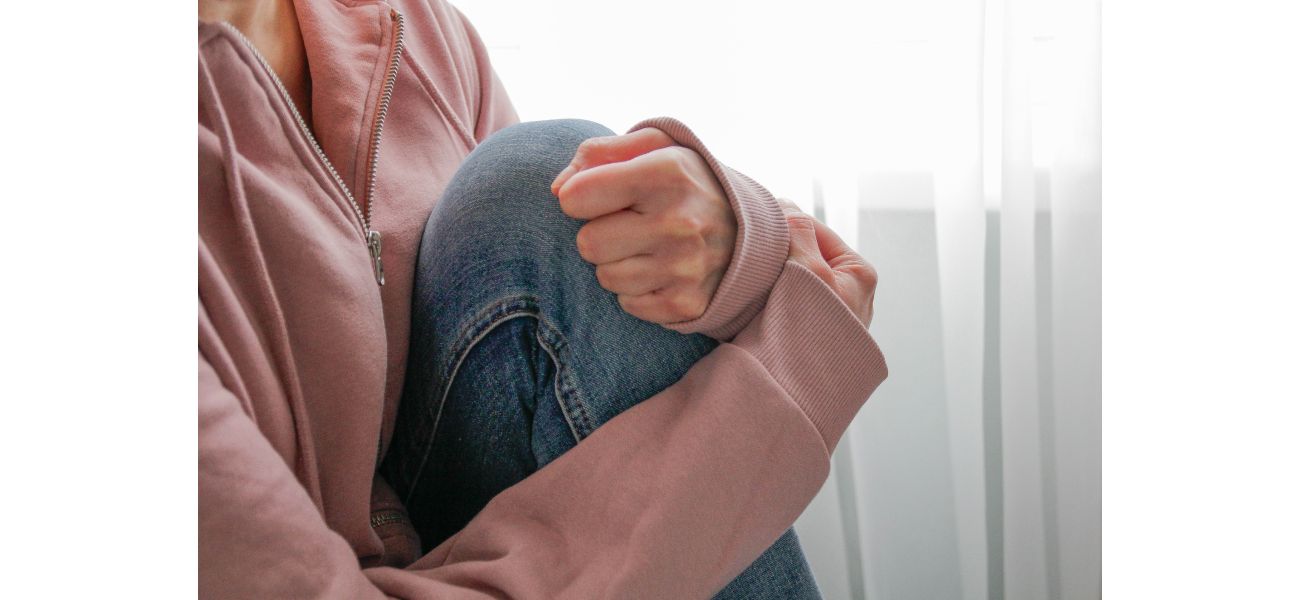Steps to take if you have been sexually assaulted or raped.
It's not your fault, remember that.
November 26th 2024.

If you or someone you know is 16 years or older and has experienced sexual violence, you can reach out to the Rape Crisis 24/7 Support Line for help. You can call 0808 500 2222 or start an online chat. Sexual violence can affect people in different ways and there is no right or wrong way to feel, behave, or cope with the aftermath. It is normal to have a mix of confusing thoughts and emotions, or even none at all. Survivors may have to deal with their physical safety, health, and emotional well-being in their own time. The most important thing to remember is that it is not your fault. Do not blame yourself. Rape is a serious crime that can never be justified and no one ever deserves it.
If you have been a victim of rape, whether recently or in the past, and are seeking help, support is available for you. But first, let's understand what rape is. Rape is when a person penetrates another person's vagina, anus, or mouth with their penis without their consent. It is different from sexual assault, which includes any sexual act that happens without consent or is forced upon someone. This can include groping, forced kissing, or sexual torture. Anyone can be a victim of rape, regardless of their sex, age, gender identity, or sexual orientation. However, it is mostly perpetrated by men against women. According to Rape Crisis England and Wales, 91% of those prosecuted for sexual offences are men aged 18 and over.
It is important to know that rape is a crime. But if you have been raped or think you have been, you do not have to report it to the police if you do not feel comfortable doing so. Support is still available for you. Rape Crisis is a feminist charity that works towards ending all forms of sexual violence, including rape, sexual assault, sexual harassment, and child sexual abuse. It does not matter if the incident happened recently or a long time ago, if you are sure you experienced sexual violence or not, or if it happened to you or someone you know. Rape Crisis will always believe you, listen to you, and offer you information and support. You can find out more about them here and if you are 16 years or older, you can call their 24/7 support line for free at 0808 500 2222.
You may be wondering how common rape is. Well, between 1 July 2023 and 30 June 2024, almost 70,000 rapes were recorded by police in the UK. Shockingly, nearly two million women aged 16 and over in the UK have been victims of rape. And one in two adult rape survivors have experienced it more than once.
If you have recently been raped and are in immediate danger, call 999 and ask for the police. Otherwise, the first step is to go somewhere you feel safe. This could mean going to a relative or friend's house if the rape happened in your own home and you no longer feel comfortable there. If you are not ready to contact the police, or if you never want to, Rape Crisis suggests talking to someone you trust about what happened. This does not mean you have to make an official report or tell anyone else. You can also contact one of the many rape and sexual assault helplines in the UK if you do not want to talk to someone you know.
Rape Crisis's 24/7 Support Line is available for anyone aged 16 and over. Trained staff will answer your call, listen to you, and discuss all your options, whether you want to take further action or not. If you do plan on going to the police, try not to wash your clothes or shower, bathe, or brush your teeth before. If you have already changed, keep the clothes you were wearing in a plastic bag. It is best to avoid eating or drinking as well, as these steps can help preserve any DNA evidence left by your attacker.
On November 25, 2024, Metro launched a year-long campaign called "This Is Not Right" to address the epidemic of violence against women. We will be sharing stories that shed light on the scale of this issue throughout the year. Our partner, Women's Aid, will be helping us educate, engage, and empower our readers on this topic. You can find recent articles from the project here, and if you would like to share your story with us, you can send us an email at [email]. Some of our articles include "Introducing This Is Not Right: Metro's year-long violence against women campaign," "Yvette Cooper's message to abusers and rapists: The streets don't belong to you," "Remembering the women killed by men in 2024," "Stories about violence against women don't make an impact - this is why," and "Men - we need your help to end violence against women."
If your loved one is at risk of domestic abuse, here's what you can do. Start by calling the police if the abuse is still happening. Otherwise, find a safe place for them, like a relative or friend's house. If they do not want to contact the police yet, or ever, you can call one of the many rape and sexual assault helplines in the UK for support. Remember, anyone aged 16 and over can contact Rape Crisis's 24/7 Support Line by calling 0808 500 2222 or starting an online chat. Their trained staff will listen and talk you through your options, no matter what you decide. Let's work together to end violence against women.
If you or someone you know has experienced sexual violence, know that you are not alone. Rape Crisis is here to support you, regardless of your age. You can reach out for help by calling their 24/7 Support Line at 0808 500 2222 or starting an online chat.
Everyone reacts differently to the experience of sexual violence, and there is no right or wrong way to feel, behave, or cope with the aftermath. It's normal to feel a mix of confusing thoughts and emotions, or even none at all. Survivors will have to consider their physical safety, health, and emotional well-being in their own time. The most important thing to remember is that it is not your fault. Rape is a serious crime that can never be justified or deserved.
So what exactly is rape? It refers to the penetration of the vagina, anus, or mouth with a penis without the other person's consent. It is a distinct act from sexual assault, which encompasses any sexual act that occurs without consent or through force. This can include groping, forced kissing, or sexual torture. Anyone can be a victim of rape, regardless of their sex, age, gender identity, or sexual orientation. However, statistics show that it is primarily perpetrated by men against women. In fact, 91% of those prosecuted for sexual offenses in England and Wales are men over the age of 18.
If you have been a victim of rape, whether recently or in the past, know that support is available. You do not have to report your experience to the police if you are not comfortable doing so. There is no pressure to do so immediately or ever. Rape Crisis is a feminist charity committed to ending all forms of sexual violence, including rape, sexual assault, sexual harassment, and child sexual abuse. They believe and listen to survivors and offer information and support, regardless of when or how the violence occurred, or if you are sure it was rape.
Rape is more common than we may think. In the UK alone, almost 70,000 rapes were recorded by the police in one year, and nearly two million women over the age of 16 have been victims of rape. Shockingly, one in two adult rape survivors have experienced rape more than once. If you have recently been raped and are in immediate danger, call 999 and ask for the police. Otherwise, the first step is to go somewhere safe. This may mean going to a friend or relative's house if the rape occurred in your own home. If you do not want to contact the police yet or ever, consider talking to someone you trust about what happened. You do not have to report it or tell anyone else if you do not want to.
If you do not feel comfortable speaking to someone you know, there are many helplines available to support you. You can call one of the UK's rape and sexual assault helplines at any time. Rape Crisis's 24/7 Support Line can be reached at 0808 500 2222, and trained staff will listen to you and guide you through your options, whether you choose to take further action or not.
If you do decide to go to the police, it is important not to wash your clothes, shower, bathe, or brush your teeth beforehand. If you do change your clothes, keep the ones you were wearing in a plastic bag. Avoid eating or drinking, as these steps can help preserve any DNA evidence that your attacker may have left on your body or clothes.
In November 2024, Metro launched a year-long campaign called This Is Not Right to raise awareness about the epidemic of violence against women. Through this campaign, we aim to educate, engage, and empower our readers on this issue with the help of our partners at Women's Aid. If you have a story to share, you can email us at email. You can also find recent articles from the project here.
If you or someone you know is at risk of domestic abuse, know that help is available. Do not hesitate to reach out for support. Remember, you are not alone, and it is not your fault. You deserve to be safe and to receive the support you need.
If you have been a victim of rape, whether recently or in the past, and are seeking help, support is available for you. But first, let's understand what rape is. Rape is when a person penetrates another person's vagina, anus, or mouth with their penis without their consent. It is different from sexual assault, which includes any sexual act that happens without consent or is forced upon someone. This can include groping, forced kissing, or sexual torture. Anyone can be a victim of rape, regardless of their sex, age, gender identity, or sexual orientation. However, it is mostly perpetrated by men against women. According to Rape Crisis England and Wales, 91% of those prosecuted for sexual offences are men aged 18 and over.
It is important to know that rape is a crime. But if you have been raped or think you have been, you do not have to report it to the police if you do not feel comfortable doing so. Support is still available for you. Rape Crisis is a feminist charity that works towards ending all forms of sexual violence, including rape, sexual assault, sexual harassment, and child sexual abuse. It does not matter if the incident happened recently or a long time ago, if you are sure you experienced sexual violence or not, or if it happened to you or someone you know. Rape Crisis will always believe you, listen to you, and offer you information and support. You can find out more about them here and if you are 16 years or older, you can call their 24/7 support line for free at 0808 500 2222.
You may be wondering how common rape is. Well, between 1 July 2023 and 30 June 2024, almost 70,000 rapes were recorded by police in the UK. Shockingly, nearly two million women aged 16 and over in the UK have been victims of rape. And one in two adult rape survivors have experienced it more than once.
If you have recently been raped and are in immediate danger, call 999 and ask for the police. Otherwise, the first step is to go somewhere you feel safe. This could mean going to a relative or friend's house if the rape happened in your own home and you no longer feel comfortable there. If you are not ready to contact the police, or if you never want to, Rape Crisis suggests talking to someone you trust about what happened. This does not mean you have to make an official report or tell anyone else. You can also contact one of the many rape and sexual assault helplines in the UK if you do not want to talk to someone you know.
Rape Crisis's 24/7 Support Line is available for anyone aged 16 and over. Trained staff will answer your call, listen to you, and discuss all your options, whether you want to take further action or not. If you do plan on going to the police, try not to wash your clothes or shower, bathe, or brush your teeth before. If you have already changed, keep the clothes you were wearing in a plastic bag. It is best to avoid eating or drinking as well, as these steps can help preserve any DNA evidence left by your attacker.
On November 25, 2024, Metro launched a year-long campaign called "This Is Not Right" to address the epidemic of violence against women. We will be sharing stories that shed light on the scale of this issue throughout the year. Our partner, Women's Aid, will be helping us educate, engage, and empower our readers on this topic. You can find recent articles from the project here, and if you would like to share your story with us, you can send us an email at [email]. Some of our articles include "Introducing This Is Not Right: Metro's year-long violence against women campaign," "Yvette Cooper's message to abusers and rapists: The streets don't belong to you," "Remembering the women killed by men in 2024," "Stories about violence against women don't make an impact - this is why," and "Men - we need your help to end violence against women."
If your loved one is at risk of domestic abuse, here's what you can do. Start by calling the police if the abuse is still happening. Otherwise, find a safe place for them, like a relative or friend's house. If they do not want to contact the police yet, or ever, you can call one of the many rape and sexual assault helplines in the UK for support. Remember, anyone aged 16 and over can contact Rape Crisis's 24/7 Support Line by calling 0808 500 2222 or starting an online chat. Their trained staff will listen and talk you through your options, no matter what you decide. Let's work together to end violence against women.
If you or someone you know has experienced sexual violence, know that you are not alone. Rape Crisis is here to support you, regardless of your age. You can reach out for help by calling their 24/7 Support Line at 0808 500 2222 or starting an online chat.
Everyone reacts differently to the experience of sexual violence, and there is no right or wrong way to feel, behave, or cope with the aftermath. It's normal to feel a mix of confusing thoughts and emotions, or even none at all. Survivors will have to consider their physical safety, health, and emotional well-being in their own time. The most important thing to remember is that it is not your fault. Rape is a serious crime that can never be justified or deserved.
So what exactly is rape? It refers to the penetration of the vagina, anus, or mouth with a penis without the other person's consent. It is a distinct act from sexual assault, which encompasses any sexual act that occurs without consent or through force. This can include groping, forced kissing, or sexual torture. Anyone can be a victim of rape, regardless of their sex, age, gender identity, or sexual orientation. However, statistics show that it is primarily perpetrated by men against women. In fact, 91% of those prosecuted for sexual offenses in England and Wales are men over the age of 18.
If you have been a victim of rape, whether recently or in the past, know that support is available. You do not have to report your experience to the police if you are not comfortable doing so. There is no pressure to do so immediately or ever. Rape Crisis is a feminist charity committed to ending all forms of sexual violence, including rape, sexual assault, sexual harassment, and child sexual abuse. They believe and listen to survivors and offer information and support, regardless of when or how the violence occurred, or if you are sure it was rape.
Rape is more common than we may think. In the UK alone, almost 70,000 rapes were recorded by the police in one year, and nearly two million women over the age of 16 have been victims of rape. Shockingly, one in two adult rape survivors have experienced rape more than once. If you have recently been raped and are in immediate danger, call 999 and ask for the police. Otherwise, the first step is to go somewhere safe. This may mean going to a friend or relative's house if the rape occurred in your own home. If you do not want to contact the police yet or ever, consider talking to someone you trust about what happened. You do not have to report it or tell anyone else if you do not want to.
If you do not feel comfortable speaking to someone you know, there are many helplines available to support you. You can call one of the UK's rape and sexual assault helplines at any time. Rape Crisis's 24/7 Support Line can be reached at 0808 500 2222, and trained staff will listen to you and guide you through your options, whether you choose to take further action or not.
If you do decide to go to the police, it is important not to wash your clothes, shower, bathe, or brush your teeth beforehand. If you do change your clothes, keep the ones you were wearing in a plastic bag. Avoid eating or drinking, as these steps can help preserve any DNA evidence that your attacker may have left on your body or clothes.
In November 2024, Metro launched a year-long campaign called This Is Not Right to raise awareness about the epidemic of violence against women. Through this campaign, we aim to educate, engage, and empower our readers on this issue with the help of our partners at Women's Aid. If you have a story to share, you can email us at email. You can also find recent articles from the project here.
If you or someone you know is at risk of domestic abuse, know that help is available. Do not hesitate to reach out for support. Remember, you are not alone, and it is not your fault. You deserve to be safe and to receive the support you need.
[This article has been trending online recently and has been generated with AI. Your feed is customized.]
[Generative AI is experimental.]
0
0
Submit Comment





